
A deacon is a member of the diaconate, an office in Christian churches that is generally associated with service of some kind, but which varies among theological and denominational traditions.

The Church of God, with headquarters in Cleveland, Tennessee, United States, is an international Holiness-Pentecostal Christian denomination. The Church of God's publishing house is Pathway Press.
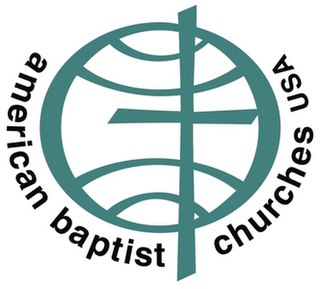
The American Baptist Churches USA (ABCUSA) is a Baptist Christian denomination established in 1907 as the Northern Baptist Convention, and named the American Baptist Convention from 1950 to 1972. It traces its history to the First Baptist Church in America (1638) and the Baptist congregational associations which organized the Triennial Convention in 1814.
The Methodist Episcopal Church, South was the American Methodist denomination resulting from the 19th-century split over the issue of slavery in the Methodist Episcopal Church (MEC). Disagreement on this issue had been increasing in strength for decades between churches of the Northern and Southern United States; in 1845 it resulted in a schism at the General Conference of the MEC held in Louisville, Kentucky.
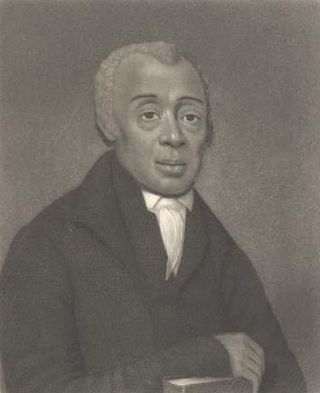
Richard Allen was a minister, educator, writer, and one of the United States' most active and influential black leaders. In 1794, he founded the African Methodist Episcopal Church (AME), the first independent Black denomination in the United States. He opened his first AME church in 1794 in Philadelphia.
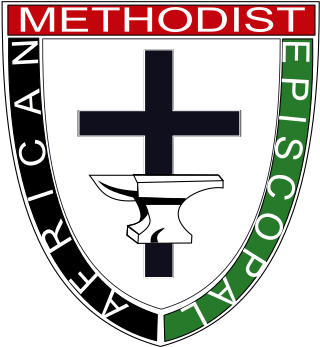
The African Methodist Episcopal Church, usually called the AME Church or AME, is a Methodist denomination based in the United States. It adheres to Wesleyan–Arminian theology and has a connexional polity. It cooperates with other Methodist bodies through the World Methodist Council and Wesleyan Holiness Connection.
The United American Free Will Baptist Church is the oldest national body of predominantly black Free Will Baptists in the United States.
United American Free Will Baptist Conference, Inc. is the smaller of the two African-American Free Will Baptist conferences in the United States.
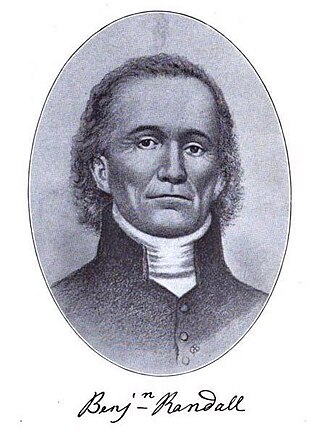
Free Will Baptists or Free Baptists are a group of General Baptist denominations of Christianity that teach free grace, free salvation and free will. The movement can be traced to the 1600s with the development of General Baptism in England. Its formal establishment is widely linked to the English theologian, Thomas Helwys who led the Baptist movement to believe in general atonement. He was an advocate of religious liberty at a time when to hold to such views could be dangerous and punishable by death. He died in prison as a consequence of the religious persecution of Protestant dissenters under King James I.
The National Association of Free Will Baptists (NAFWB) is a national body of Free Will Baptist churches in the United States and Canada, organized on November 5, 1935 in Nashville, Tennessee. The Association traces its history in the United States through two different lines: one beginning in the South in 1727 and another in the North in 1780. The "Palmer line," however, never developed as a formal denomination. It consisted of only about three churches in North Carolina. The NAFWB is the largest of the Free Will Baptist denominations.

The African Methodist Episcopal Zion Church, or the AME Zion Church (AMEZ) is a historically African-American Christian denomination based in the United States. It was officially formed in 1821 in New York City, but operated for a number of years before then. The African Methodist Episcopal Zion Church adheres to Wesleyan-Arminian theology.
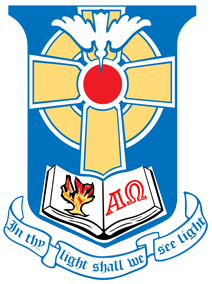
The Associate Reformed Presbyterian Church (ARPC) is a theologically conservative denomination in North America. The ARPC was formed by the merger of the Associate Presbytery (seceder) with the Reformed Presbytery (covenanter) in 1782. It is one of the oldest conservative denominations in the United States.
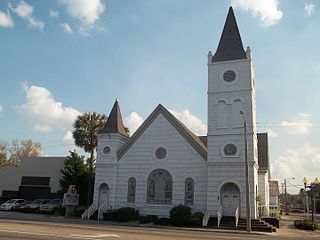
Black churches primarily arose in the 19th century, during a time when race-based slavery and racial segregation were both commonly practiced in the United States. Blacks generally searched for an area where they could independently express their faith, find leadership, and escape from inferior treatment in White dominated churches. The Black Church is the faith and body of Christian denominations and congregations in the United States that predominantly minister to, and are also led by African Americans, as well as these churches' collective traditions and members.

First Baptist Church was the first Baptist church in Petersburg, Virginia; one of the first African-American Baptist congregations in the United States, and one of the oldest black churches in the nation. It established one of the first local schools for black children in the nation.

In Christianity, the ordination of women has been taking place in an increasing number of Protestant and Old Catholic churches, starting in the 20th century. Since ancient times, certain churches of the Orthodox tradition, such as the Coptic Orthodox Church, have raised women to the office of deaconess. While ordination of women has been approved in many denominations, it is still a very controversial and divisive topic.

Henry McNeal Turner was an American minister, politician, and the 12th elected and consecrated bishop of the African Methodist Episcopal Church (AME). After the American Civil War, he worked to establish new A.M.E. congregations among African Americans in Georgia. Born free in South Carolina, Turner learned to read and write and became a Methodist preacher. He joined the AME Church in St. Louis, Missouri, in 1858, where he became a minister. Founded by free blacks in Philadelphia, Pennsylvania, in the early 19th century, the A.M.E. Church was the first independent black denomination in the United States. Later Turner had pastorates in Baltimore, Maryland, and Washington, DC.
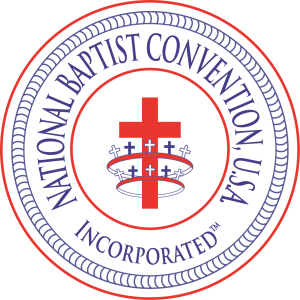
The National Baptist Convention, USA, Inc., more commonly known as the National Baptist Convention, is a Baptist Christian denomination headquartered at the Baptist World Center in Nashville, Tennessee and affiliated with the Baptist World Alliance. It is also the largest predominantly and traditionally African American church in the United States and the second largest Baptist denomination in the world.
London Ferrill, also spelled Ferrell, was a former enslaved man and carpenter from Virginia who became the second preacher of the First African Baptist Church in Lexington, Kentucky, serving from 1823 to 1854. During his 31 years of service, Ferrill attracted and baptized many new members in the growing region; by 1850, the church had 1,820 members and was the largest of any congregation in the state, black or white.
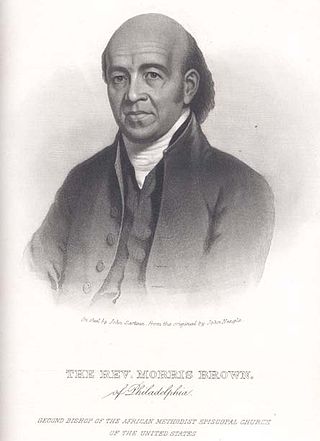
Morris Brown was one of the founders of the African Methodist Episcopal Church, and its second presiding bishop. He founded Emanuel AME Church in his native Charleston, South Carolina. It was implicated in the slave uprising planned by Denmark Vesey, also of this church, and after that was suppressed, Brown was imprisoned for nearly a year. He was never convicted of a crime.

Gowan Pamphlet (1748–1807) was an American Baptist minister and freedman who founded the Black Baptist Church in Williamsburg, Virginia, United States. He was one of the first and, for a time, the only ordained African American preacher of any denomination in the American Colonies.















